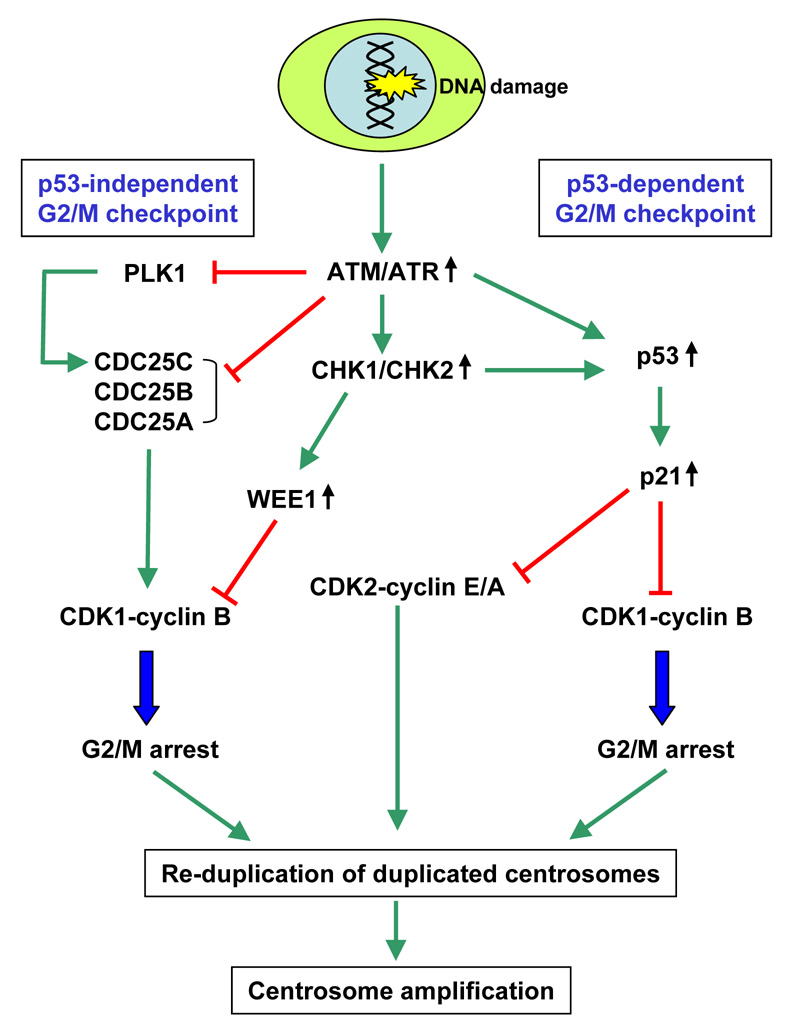Figure 7. Centrosome amplification in cells arrested by the G2/M checkpoint in response to DNA damage occurs efficiently in the absence of p53.
The G2/M checkpoints in response to DNA damage are exerted through the p53-dependent and p53-independent pathways, both of which target CDK1-cyclin B. Both p53-dependent and - independent G2/M checkpoint responses are triggered by activation of ATM/ATR and CHK1/CHK2 kinases. In the p53-independent pathway, CHK1 and CHK2 phosphorylate and inhibit CDC25A, B and C. CHK1 also inhibits the activity of PLK1, which is known to activate CDC25C. CHK1 also appears to suppress CDC25B by blocking the access of CDC25B to centrosomally localized CDK1-cyclin B (initial activation of CDK1-cyclin B is thought to occur at centrosomes) [85, 86]. CHK1 also phosphorylates and up-regulates the activity of WEE1 kinase that catalyzes the inhibitory phosphorylation of CDK1. All these events block the activation of CDK1-cyclin B in a concerted fashion, resulting in late G2 arrest. In the p53-dependent pathway, ATM/ATR and CHK1/CHK2 phosphorylate and stabilize p53, which in turn up-regulates p21. p21 then suppresses the activity of CDK1-cyclin B, leading to late G2 arrest. This G2 arrest provides time for centrosomes to regain duplication competency and re-duplicate. However, CDK2 activity is still required for centrosomes to re-duplicate. In late G2 phase, high levels of already active form of CDK2 (mostly complexed with cyclin A) are present. In cells arrested by the G2/M checkpoint responses, those CDK2 kinases remain active even efficient inhibition of CDC25s. However, if the intact p53-dependent pathway is present, centrosome re-duplication is blocked by the p21-mediated suppression of the CDK2 activity. In contrast, in the absence of the p53-dependent pathway, centrosomes re-duplication is continuously triggered by active CDK2-cyclin E/A.

